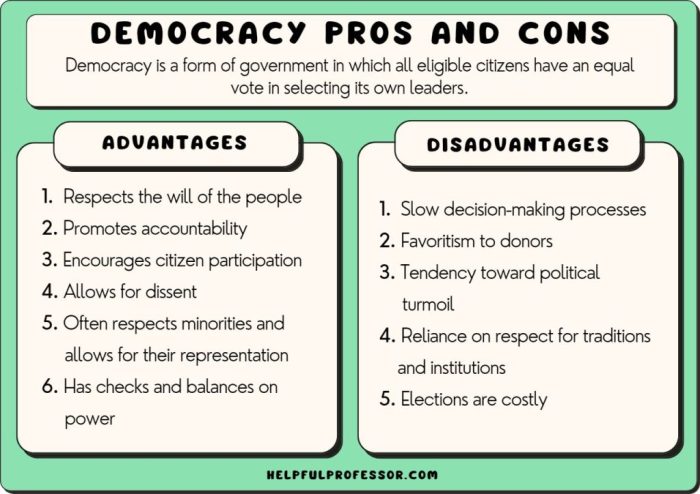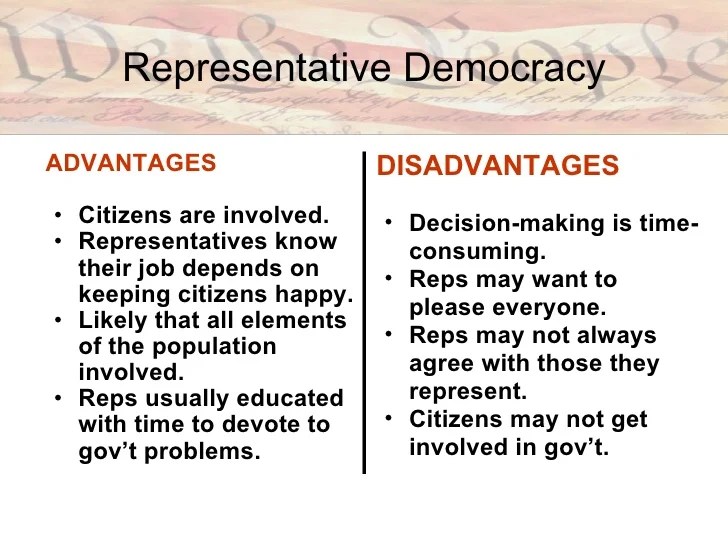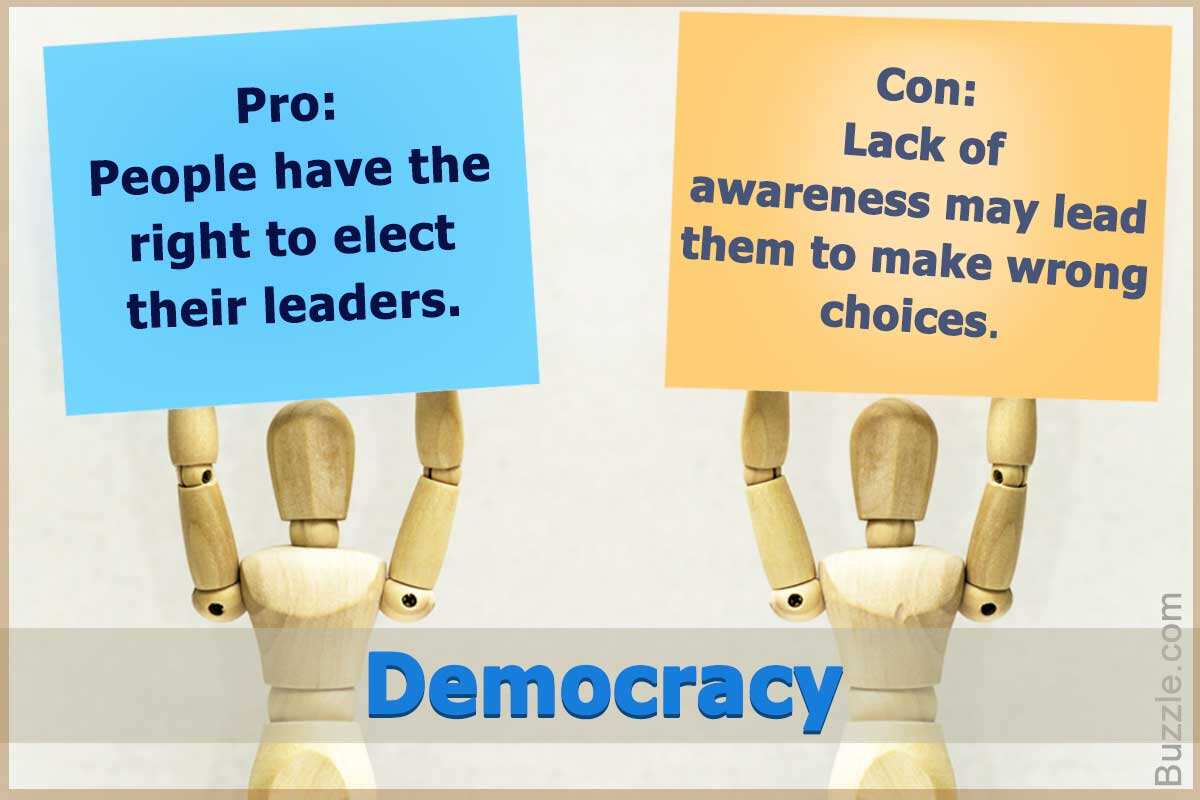Advantages and disadvantages of a representative democracy – Representative democracy, a governance model where elected officials represent the will of the people, offers both advantages and disadvantages. This essay delves into these aspects, exploring the benefits of elected representation, the challenges it faces, and the potential for improvement.
Representative democracy empowers citizens by giving them a voice in decision-making through their elected representatives. It also facilitates the protection of minority rights and the promotion of political stability.
Advantages of a Representative Democracy: Advantages And Disadvantages Of A Representative Democracy

Representative democracy is a form of government in which citizens elect representatives to make decisions on their behalf. This system offers several advantages over other forms of government.
Benefits of Elected Officials
- Expertise:Elected officials can bring specialized knowledge and expertise to the decision-making process, which can lead to better outcomes for the people they represent.
- Accountability:Elected officials are accountable to the people who elected them, which helps to ensure that they act in the best interests of their constituents.
- Representation:Elected officials can represent the diverse interests of their constituents, ensuring that all voices are heard in the decision-making process.
Role of Political Parties, Advantages and disadvantages of a representative democracy
Political parties play a vital role in representative democracies by:
- Aggregating interests:Political parties aggregate the interests of their members, making it easier for elected officials to represent the views of their constituents.
- Providing platforms:Political parties provide platforms for candidates to present their ideas and policies to the public.
- Holding officials accountable:Political parties can hold elected officials accountable for their actions, ensuring that they stay true to their campaign promises.
Protection of Minority Rights
Representative democracies can help to protect the rights of minorities by:
- Ensuring representation:Representative democracies ensure that minority groups have a voice in the decision-making process.
- Preventing tyranny:Representative democracies prevent the tyranny of the majority by ensuring that the rights of all citizens are protected.
- Promoting tolerance:Representative democracies promote tolerance and understanding by encouraging dialogue between different groups.
FAQ Overview
What are the key advantages of representative democracy?
Representative democracy provides a voice for citizens, protects minority rights, and promotes political stability.
What are the potential drawbacks of representative democracy?
Drawbacks include the potential for elected officials to not truly reflect the views of their constituents, the influence of corruption and special interests, and the challenges of ensuring fair and equitable representation.

